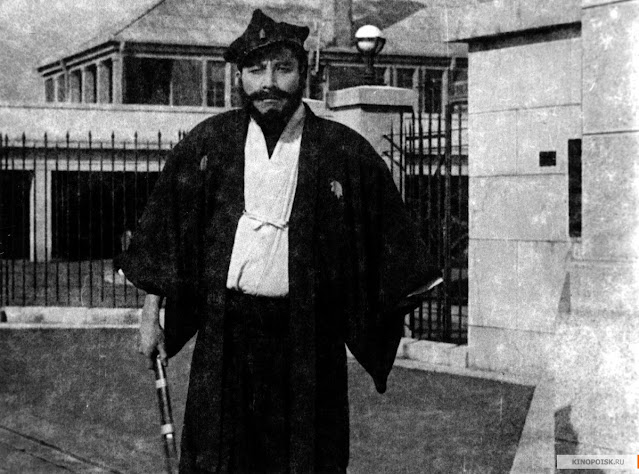 |
| Tokihiko Okada in The Lady and the Beard |
The Lady and the Beard is one of Yasujiro Ozu's silent comedies that, like I Graduated, But... (1929), I Flunked, But ... (1930), and Where Now Are the Dreams of Youth? (1932), center on college students and their postgraduate life. The protagonist, Kiichi (Tokhiko Okada), affects a full beard and old-fashioned dress, which his fellow students tolerate laughingly, but which opens him to mockery when he goes home with a friend who invites him to his sister's birthday party. The young women at the party shun him. Worse, when he graduates, he discovers that the beard is an obstacle to getting a job. So he shaves it off, and suddenly finds that he's not only employable but also a magnet to marriageable young women. He rescues Hiroko (Hiroko Kawasaki) from being mugged by Furyo (Satoko Date) and her thuggish companions, and winds up attracting the attention of both women. Later, he encounters Furyo again at the hotel where he works: He thwarts her in a con job involving a piece of jewelry, but that doesn't deter her interest in him. It's a likable little comedy with an endearing performance by Okada. I occasionally had trouble following some of the narrative, whether because of cultural differences or missing footage -- the print shows signs of damage. As often with Ozu's early films, he shows his inspiration in the form of movie posters on the characters' walls: Kiichi's room has a poster of a Laurel and Hardy movie. Ozu credits himself, under his pseudonym James Maki, as the film's gag writer.